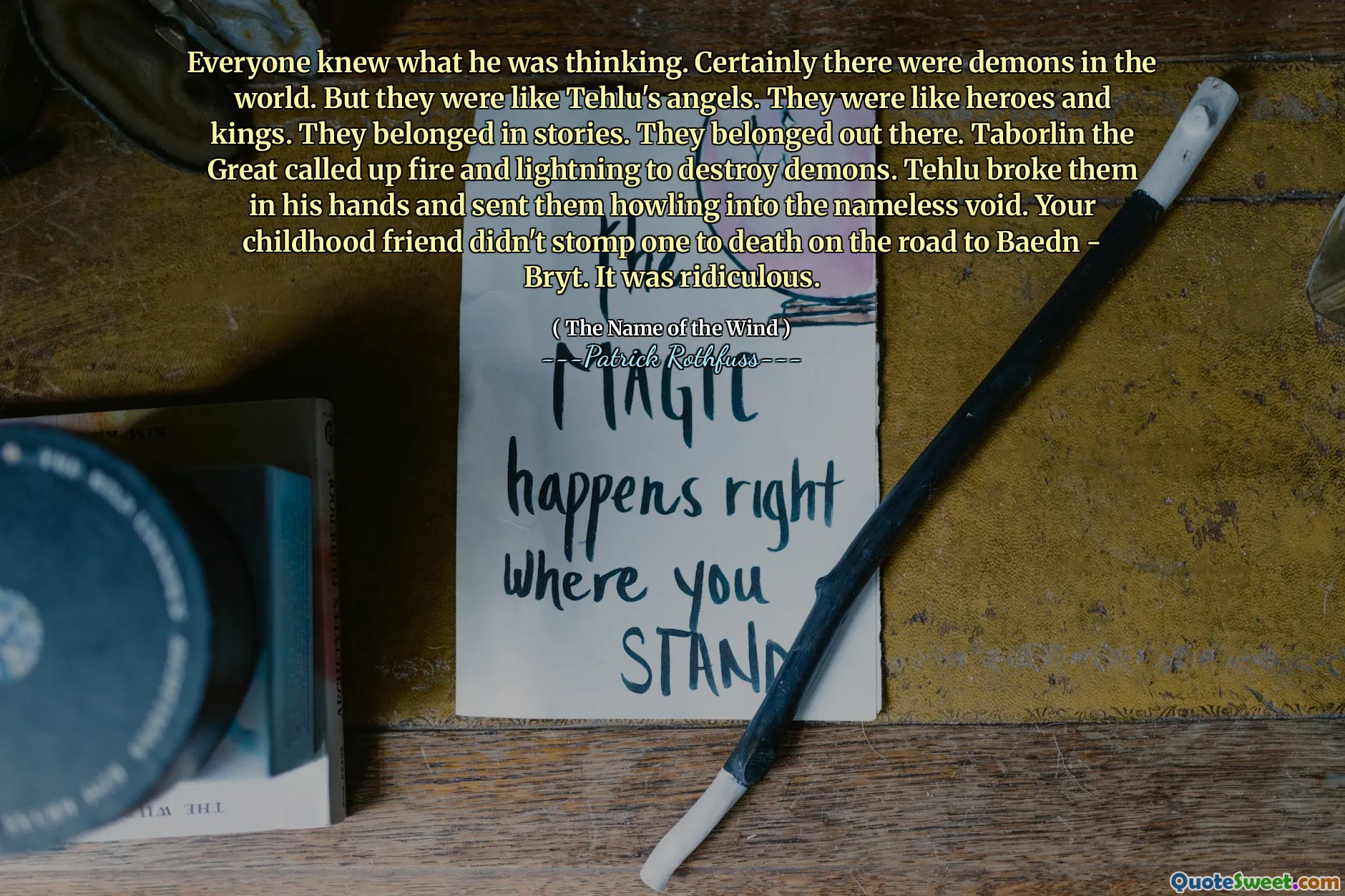
Everyone knew what he was thinking. Certainly there were demons in the world. But they were like Tehlu's angels. They were like heroes and kings. They belonged in stories. They belonged out there. Taborlin the Great called up fire and lightning to destroy demons. Tehlu broke them in his hands and sent them howling into the nameless void. Your childhood friend didn't stomp one to death on the road to Baedn - Bryt. It was ridiculous.
This quote offers a profound reflection on the nature of myth, perception, and the reality of good versus evil. The comparison of demons to Tehlu's angels and legendary heroes underscores how human beings often frame their understanding of evil through stories and archetypes. These stories serve as cultural touchstones that elevate certain figures to mythic status, making the concepts more approachable and understandable. The mention of Taborlin the Great conjuring fire and lightning to destroy demons highlights how legendary figures embody the triumph of power and heroism over darkness, elevating their deeds into the realm of mythic storytelling.
Conversely, the act of Tehlu breaking demons in his hands symbolizes the raw, almost merciless power that the divine or higher forces harness against true evil. The 'nameless void' signifies the unknowable, ultimate Abyss where such evils are cast away, beyond human comprehension or reach. The contrasting example of the childhood friend not stomping a demon into submission on the road suggests that most confrontations with evil are not heroic or cinematic but mundane, human struggles. It emphasizes that true evil exists in a different realm from the simplified stories we tell.
This juxtaposition invites reflection on how stories shape our comprehension of morality. Are heroes simply playing roles within the narrative, or do they embody genuine divine power? The quote challenges readers to consider the difference between mythic stories that inspire and the gritty reality of everyday struggles against dark forces. It reminds us that while stories help us understand good and evil, reality often demands humility and perseverance rather than heroism.
In short, Rothfuss's writing beautifully explores the contrast between mythic ideals and everyday morality, urging us to see both in their own right and recognize their roles in human understanding and storytelling.






